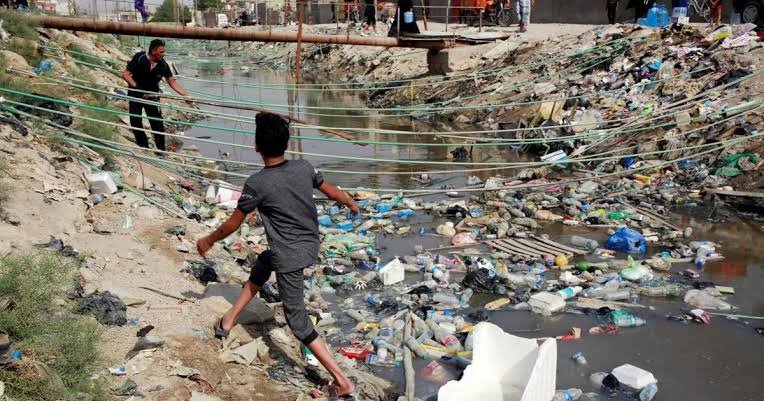Climate change, unclean water epidemic plague Iraq, prompting health crisis

In a remote village in the drought-stricken province of Al-Diwaniyah, a distressed Iraqi father, Najeh Farhan, points to a blister on his one-year-old daughter’s face, a consequence of a parasitic infection transmitted by sandflies.
The “Baghdad boil,” as Farhan describes it, has afflicted little Tiba. In a region grappling with the repercussions of war, persistent poverty, water scarcity, and a warming climate, Tiba is among countless children suffering without access to proper healthcare.
Farhan laments the lack of medical facilities in their small village of Al-Zuweiya. Tiba has contracted cutaneous leishmaniasis, a disease endemic in Iraq for decades. By 2022, the World Health Organization had reported 8,000 infections in the country. However, this year, a “surprising development” emerged as the first confirmed case appeared in a traditionally sandfly-free province in northern Iraq.
The WHO attributes the spread of this disease to “inadequate access to medical treatment in remote areas,” but it also emphasizes the role of climate change. Wael Hatahit, the WHO’s acting representative in Iraq, points to rising temperatures and altered rainfall patterns, underscoring that the northward expansion of the sandfly-borne disease cannot be explained without acknowledging climate change.
Tiba and one of her brothers, suffering from jaundice and skin rashes, are emblematic of Iraq’s broader public health crisis. From cholera to chronic diarrhea and sandstorm-triggered asthma attacks, disadvantaged communities are grappling with a multitude of health issues.
The Iraqi Red Crescent has launched a campaign in nine provinces, deploying medical personnel, volunteers, mobile clinics, and ambulances to provide free medical care and raise awareness about various health threats. In Al-Ayyach, women await medical examinations alongside ambulances as aid workers sort through supplies.
Raghda Ihsane, a pharmacist, lists common cases treated by the medical team, including intestinal infections, dermatological diseases, skin rashes caused by poor water quality, and inflamed urinary tracts. Unclean and unsafe water is a major health hazard in Iraq, which ranks among the countries most severely affected by climate change and is currently in its fourth consecutive year of drought.
The water scarcity is aggravated by diminished flows in the Tigris and Euphrates rivers due to upstream dams, as well as damage resulting from conflict and neglect to water treatment facilities and infrastructure.
An official from the environment ministry recently acknowledged that “sewer pipes in Baghdad discharge wastewater directly into the Tigris River.” Cholera is spreading in the north, especially in Sulaimaniyah, where the WHO had documented 152 confirmed cases by September 12. Sabah Hourami, director of Sulaimaniyah’s health authority, identifies the principal cause as the use of non-potable water.
Efforts are underway to address the situation, including testing chlorine levels in public water supplies and tightening controls on water tankers, restaurants, and mosques. As hospitals fill with patients, those experiencing diarrhea and vomiting are now treated as cholera cases.
Water stress is at the heart of these health threats, says medical anthropologist Mac Skelton, who heads the Institute of Regional and International Studies at the American University of Iraq-Sulaimani.
Decreased water flow leads to higher concentrations of sewage and industrial pollutants in the water supply, straining Iraq’s water treatment facilities. This, in turn, is associated with a range of conditions such as cholera, gastrointestinal diseases, skin diseases, and diarrhea.
Looking ahead, Skelton emphasizes the need for improved public health systems to warn the population of heightened contamination and to monitor outbreaks. He also underscores the importance of enhancing Iraq’s seriously deteriorated water treatment infrastructure.







